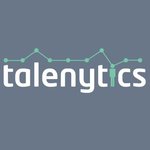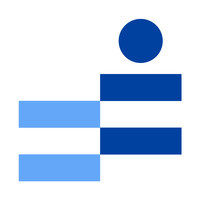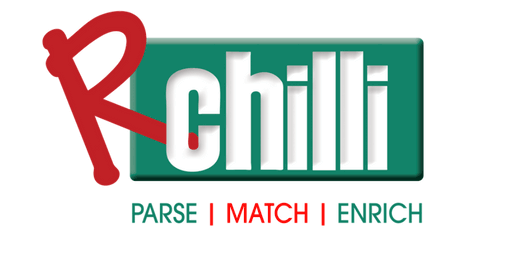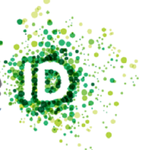Description

Talenytics

Big Biller
Comprehensive Overview: Talenytics vs Big Biller
Talenytics and Big Biller are two distinct platforms designed to support recruitment and talent management, each with its own primary functions, target markets, and unique features. Here's a comprehensive overview of each:
Talenytics
a) Primary Functions and Target Markets:
- Primary Functions: Talenytics is a talent analytics platform. It focuses on improving the hiring process by providing data-driven insights. Its key functionalities include recruitment analytics, candidate assessment feedback, and metrics to enhance the quality of hire. The platform is designed to help recruitment teams and hiring managers make more informed decisions by using analytics to align their processes with business goals.
- Target Markets: Talenytics primarily targets mid to large-sized organizations, recruiting firms, and HR departments that focus heavily on optimizing their recruitment strategies through data-driven methods.
b) Market Share and User Base:
- Market Share and User Base: Talenytics is known for serving a niche segment in the recruitment industry focused on analytics and process optimization. While it may not command a significant market share compared to larger ATS (Applicant Tracking Systems) players, it has a loyal user base focused on quality hiring.
c) Key Differentiating Factors:
- Analytics Focus: Unlike traditional ATS, Talenytics stands out with its emphasis on recruitment analytics, offering detailed insights and reports.
- Candidate Experience: The platform provides detailed feedback to candidates, enhancing the transparency and experience throughout the hiring process.
- Integration Capabilities: Talenytics can integrate with existing ATS and HRM systems, offering more flexibility and enhancing existing recruitment operations.
Big Biller
a) Primary Functions and Target Markets:
- Primary Functions: Big Biller is an Applicant Tracking System (ATS) designed to help staffing agencies streamline their recruiting process. It offers features such as candidate tracking, resume parsing, job management, and a CRM system to manage client relationships effectively.
- Target Markets: The primary target market for Big Biller includes small to medium-sized staffing agencies and recruitment firms that need a robust and user-friendly ATS to manage recruitment workflows efficiently.
b) Market Share and User Base:
- Market Share and User Base: Big Biller has carved out a considerable share in the ATS market, especially among staffing agencies. It is widely used due to its affordability, functionality, and ease of use, appealing to smaller firms that need quick and effective solutions.
c) Key Differentiating Factors:
- Ease of Use: Big Biller is known for its user-friendly interface, which simplifies the recruitment process for staffing agencies.
- Cost-effective: It is an affordable solution compared to more comprehensive ATS platforms, making it a popular choice for smaller agencies.
- Integrated CRM: The built-in CRM functionality allows users to manage both candidates and client relationships efficiently, adding value to its traditional ATS capabilities.
Comparison Summary:
- Focus: Talenytics is centered on analytics and improving hiring quality, whereas Big Biller emphasizes streamlining the recruitment process through an ATS for staffing agencies.
- Target Audience: Talenytics suits larger organizations looking for analytics, whereas Big Biller appeals to smaller staffing agencies needing comprehensive ATS features.
- Market Approach: Talenytics specializes in integration and analytics, contrasting Big Biller’s focus on ease of use and cost-effectiveness.
In conclusion, while both platforms serve the recruitment industry, their approaches, target markets, and key differentiators cater to different segments and priorities within the field.
Contact Info

Year founded :
Not Available
+44 141 779 8299
Not Available
United Kingdom
Not Available

Year founded :
Not Available
Not Available
Not Available
Not Available
Not Available
Feature Similarity Breakdown: Talenytics, Big Biller
As of my last update, Talenytics and Big Biller are platforms designed to support recruitment and talent management by offering a variety of features aimed at improving efficiency and effectiveness in the hiring process. Here is a breakdown of their feature similarities, user interface comparisons, and unique features.
a) Core Features in Common:
-
Applicant Tracking System (ATS): Both Talenytics and Big Biller provide an ATS, which helps recruiters manage job applications and streamline the hiring process.
-
Candidate Sourcing: They offer tools to help find candidates through various channels like job boards, social media, and career sites.
-
Resume Parsing: These platforms can automatically extract data from resumes to populate candidate profiles.
-
Collaboration Tools: Both solutions enable team collaboration through shared notes, interview feedback, and communication tools.
-
Reporting and Analytics: Talenytics and Big Biller provide reporting features to track recruitment metrics, such as time-to-hire or source effectiveness.
-
Integration Capabilities: They offer integration with other HR tools and software to streamline processes.
b) User Interface Comparisons:
-
Talenytics: Talenytics is known for its intuitive dashboard and visual analytics, focusing heavily on delivering insights through a user-friendly interface. Its design emphasizes ease of navigation and provides a modern, streamlined look.
-
Big Biller: Big Biller provides a straightforward, user-friendly interface catering to recruiters seeking a simpler, more direct experience. It is designed to be efficient for regular use, emphasizing function over form with a clean and professional look.
Both platforms prioritize usability, with slight differences in aesthetic and layout that cater to different preferences—Talenytics has a stronger focus on visual data representation, while Big Biller emphasizes quick and easy access to core recruitment tools.
c) Unique Features:
-
Talenytics:
- Enhanced Analytics Focus: Talenytics leans heavily into analytics for talent management, providing more detailed insights into recruitment performance and candidate interactions.
- Candidate Experience Tools: Includes features that specifically focus on improving the candidate experience by collecting feedback throughout the recruitment process and integrating it into analytics to refine hiring practices.
-
Big Biller:
- Customizable Pipelines: Offers highly customizable recruitment pipelines, allowing firms to adapt workflows to specific processes.
- Job Order Management: Provides specific tools for managing job orders and matching them with candidate profiles within the system.
Each platform has features that cater to specific aspects of recruitment management, with Talenytics focusing on insight generation and candidate experience, while Big Biller provides operational flexibility and ease of use for recruiters. Users often choose based on their specific needs for insights versus streamlined recruitment operations.
Features

Not Available

Not Available
Best Fit Use Cases: Talenytics, Big Biller
Talenytics
a) Best Fit Use Cases for Talenytics:
-
Talent Management and Analytics:
- Talenytics is highly suitable for businesses focused on enhancing their talent management processes through data-driven insights. This includes enterprises that aim to refine their recruitment strategies, improve employee retention, and optimize team productivity by leveraging analytics.
-
Large Corporations and Enterprises:
- Companies with a significant number of employees and complex HR processes benefit greatly from Talenytics. The platform’s capabilities are ideal for managing large-scale talent operations, providing insights into workforce trends, and supporting strategic decision-making.
-
Organizations Prioritizing Employee Experience:
- Businesses that prioritize employee experience and satisfaction, seeking to implement continuous feedback and improvement mechanisms, find Talenytics particularly valuable. It supports continuous employee engagement and performance improvement strategies.
-
Industries with a High Focus on Human Capital:
- Sectors such as finance, consulting, healthcare, and tech, where high-skilled professionals are crucial to business success, can leverage Talenytics to maintain a competitive edge in talent acquisition and management.
Big Biller
b) Preferred Use Cases for Big Biller:
-
Recruitment Agencies:
- Big Biller is tailored for recruitment agencies that require a powerful applicant tracking system (ATS) to manage clients and candidates efficiently. It helps streamline the recruitment process from prospecting to placement.
-
Small to Medium-Sized Businesses (SMBs):
- Small and medium-sized businesses that need a straightforward and effective tool for managing recruiting efforts will benefit from Big Biller’s user-friendly interface and comprehensive recruiting features without the complexity of larger systems.
-
High-Volume Recruiting:
- Companies or staffing agencies that handle high volumes of recruiting activity, such as those in retail, hospitality, and manufacturing, will find Big Biller’s capabilities for managing large candidate pools essential.
-
Early-Stage Companies:
- Startups and early-stage companies looking to grow rapidly might turn to Big Biller for its agility in scaling recruiting processes without the need for a heavy investment in human resources software.
d) Catering to Different Industry Verticals or Company Sizes:
-
Talenytics is well-suited for larger organizations and industry verticals that require robust analytics and talent management capabilities, offering flexibility and scalability to cater to various industry needs, such as finance and healthcare, where strategic employee management is key.
-
Big Biller, on the other hand, is designed for ease of use and rapid implementation, making it an excellent choice for recruitment agencies and SMBs across diverse verticals such as retail, manufacturing, and hospitality, where efficiency in handling recruiting volume is critical.
Both products scale differently based on the company size and industry requirements, with Talenytics offering a more comprehensive analytics suite and Big Biller focusing on streamlining recruitment operations.
Pricing

Pricing Not Available

Pricing Not Available
Metrics History
Metrics History
Comparing undefined across companies
Conclusion & Final Verdict: Talenytics vs Big Biller
When comparing Talenytics and Big Biller, it's important to weigh each product's features, pricing, scalability, user interface, and customer support. Here's a detailed conclusion and final verdict based on these factors:
Overall Best Value
Winner: Talenytics
Reasoning: Talenytics offers a comprehensive suite of features tailored toward enhancing the recruitment process through analytics and feedback mechanisms. This focus on data-driven insights can provide long-term value by improving hiring efficiency and quality. If these benefits align with your strategic goals, Talenytics is likely to provide better overall value.
Pros and Cons of Each Product
Talenytics
Pros:
- Data-Driven Insights: Focuses on analytics to improve hiring decisions and candidate experience.
- Candidate Experience: Advanced features for collecting and analyzing candidate feedback.
- Integration: Often integrates well with existing HR systems to streamline processes.
Cons:
- Cost: Potentially higher cost due to advanced features and analytics focus.
- Complexity: May require more training and change management to effectively utilize all features.
Big Biller
Pros:
- User-Friendly: Known for an intuitive interface that is easy to navigate.
- Affordable: Lower price point makes it an attractive option for smaller businesses or startups.
- Simplicity: Provides core recruitment functionalities without unnecessary complications.
Cons:
- Limited Advanced Features: Lacks deep analytics and feedback mechanisms compared to Talenytics.
- Scalability: May not scale well with rapidly growing companies or those with complex recruiting needs.
Recommendations for Users Deciding Between Talenytics vs Big Biller
-
Evaluate Your Needs: Assess your organization’s size, growth trajectory, and specific recruiting challenges. If advanced analytics and candidate feedback are critical, Talenytics is the way to go. For straightforward recruiting processes, Big Biller might be more suitable.
-
Budget Considerations: Consider your budget constraints. Talenytics offers superior analytics worth the investment if your budget allows. However, if cost-saving is a priority, Big Biller offers essential features at a lower price.
-
Trial Periods: Take advantage of any free trials or demos offered by both products. This hands-on experience can clarify which platform aligns better with your recruitment process and team preferences.
-
Long-Term Goal Alignment: Align the tool choice with your long-term business goals. Talenytics is better for organizations aiming to refine recruitment processes through data insights, whereas Big Biller is suitable for businesses prioritizing ease of use.
In conclusion, the best choice will depend on your organization's specific recruiting needs and strategic priorities. Talenytics provides the most value through its comprehensive, data-driven approach, while Big Biller is ideal for those requiring a more straightforward, cost-effective solution.
Add to compare
Add similar companies



